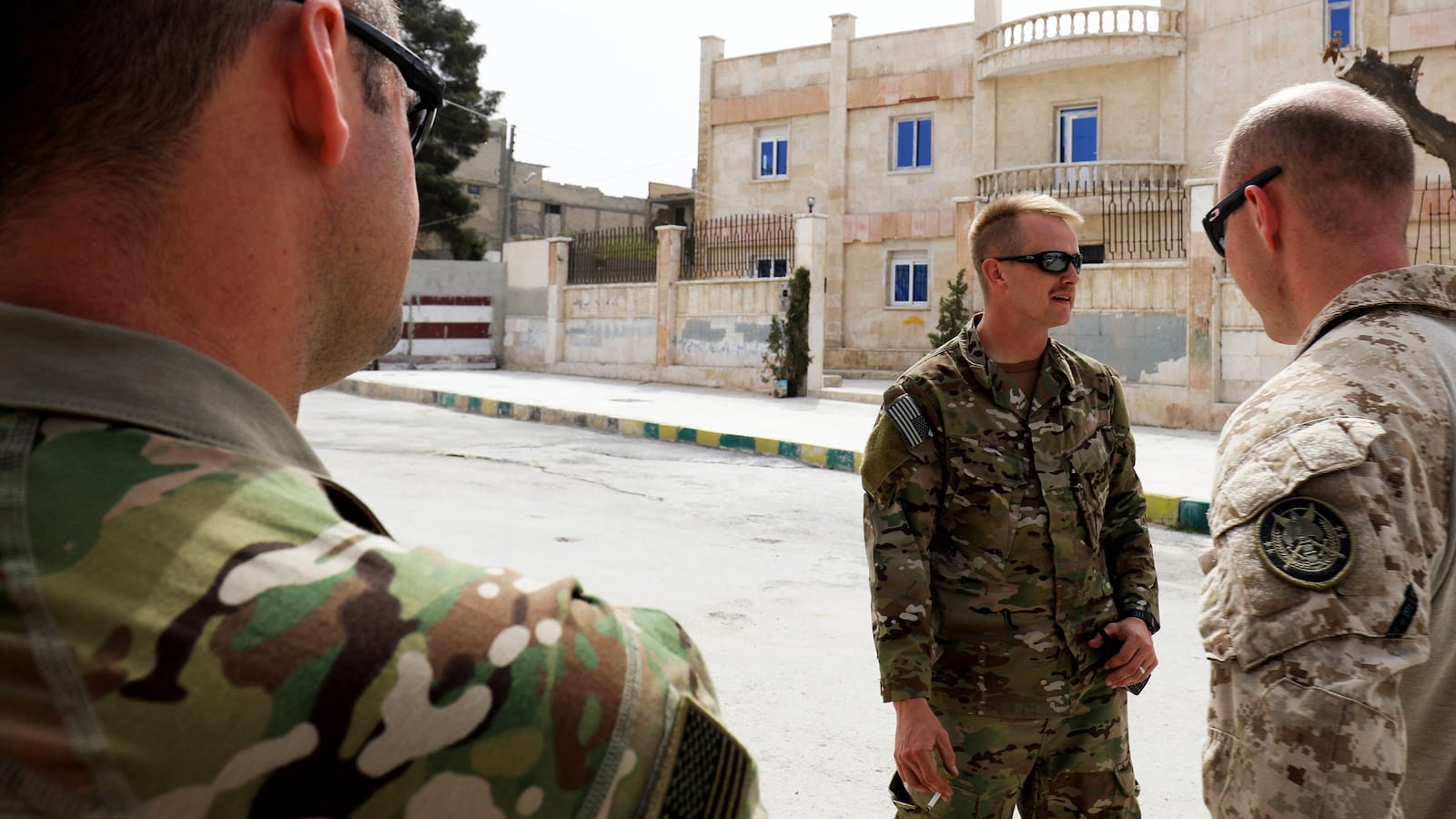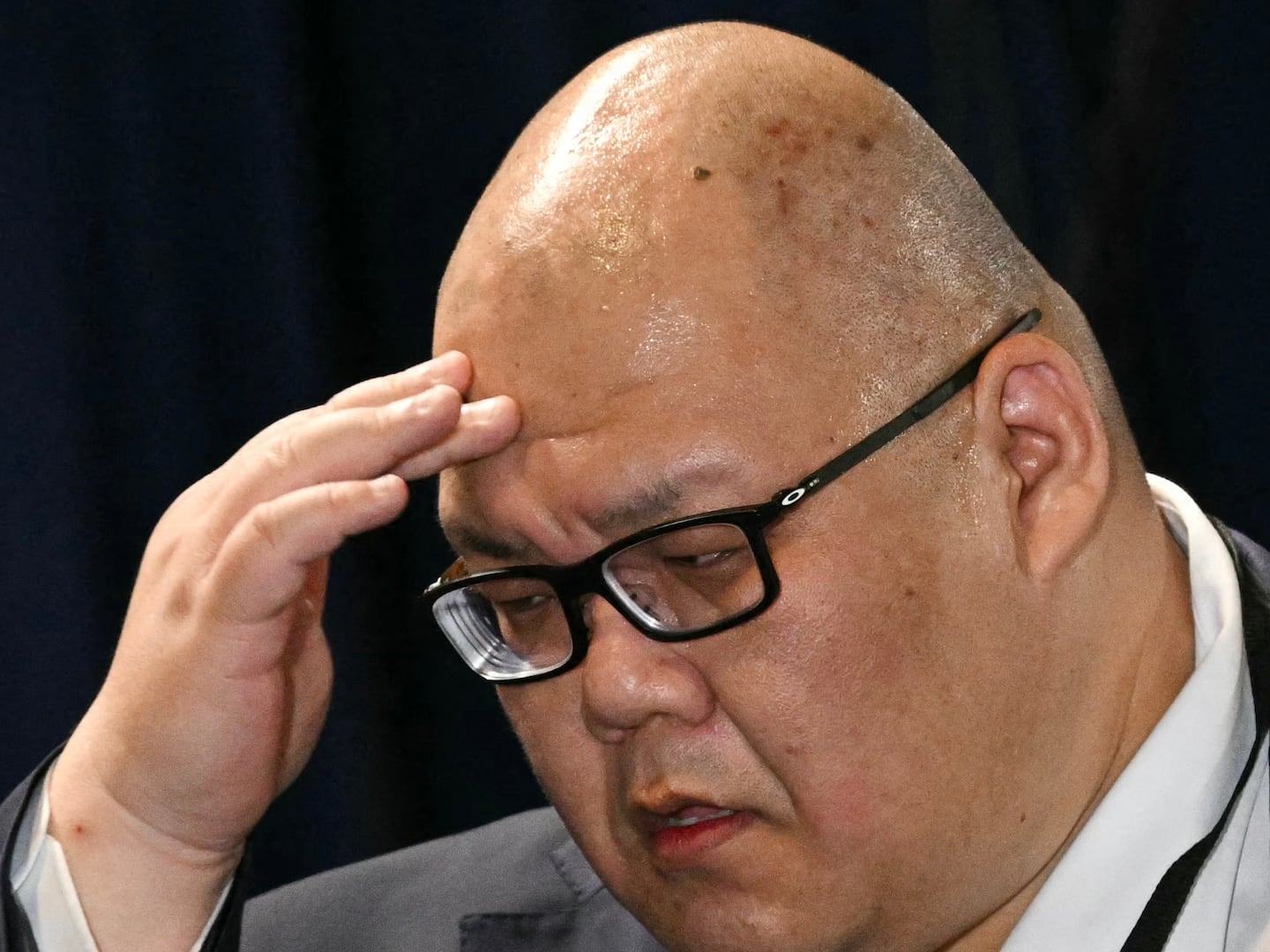In the latest revision to a wartime decision that rattled the Middle East and prompted two major resignations from Donald Trump’s administration, a senior State Department official says there’s “no timeline” for the withdrawal of 2,000 U.S. troops from Syria.
“The president has made the decision that we will withdraw our military forces from Syria, but that it will be done in a deliberate, heavily coordinated way with our allies and partners,” the senior official briefed reporters on Friday ahead of a ten-country diplomatic reassurance tour by Secretary of State Mike Pompeo and John Bolton, President Trump’s national security adviser.
At the same time, the official continued, “we do not intend to have an indefinite military presence in Syria.”
What that now means is unclear. Trump’s pullout from Syria was first supposed to take 30 days, according to Pentagon officials. The Daily Beast reported last month that administration officials, alarmed by the prospect that Islamic State forces would get a new lease on life from the abrupt pull out, were seeking to slow-walk the decision. But the announced pullout prompted both Defense Secretary Jim Mattis and Brett McGurk, whom Trump inherited as the diplomatic glue adhering the coalition against ISIS, to quit in protest.
On Dec. 30, Sen. Lindsey Graham (R-SC), who opposes the withdrawal, met with Trump at the White House and expressed confidence that the president would slow the departure. CNN reported Wednesday, citing Pentagon sources, that the newest plan was for a 120-day departure period, a timeframe that anonymous officials said was the quickest possible for an orderly withdrawal.
But the White House that same day, Trump suggested he had no commitment to that timeframe. “Somebody said four months, but I didn’t say that either. I’m getting out — we’re getting out of Syria,” he told reporters.
The pullout decision took many regional allies by surprise. But the senior State Department official on Friday indicated to reporters that the administration was planning more thorough consultations as the plan comes closer to fruition.
“It will be done in a deliberate, heavily coordinated way with our allies and partners,” the official said, indicating that the details of the withdrawal remain to be determined: “we are formulating the plans to do that right now.” The official said that a key consideration for the planning is to “maintain pressure on ISIS throughout.”
Bolton will travel to Israel and Turkey, which was pivotal in convincing Trump to leave Syria, on Friday. U.S. officials are fearful that Turkey will slaughter the Syrian Kurds, who have provided the bulk of the fighting for the U.S. against ISIS, and the Turks are reportedly asking for substantial U.S. logistical aid for a replacement campaign against residual pockets of ISIS in Syria. Bolton will be accompanied in Turkey, he tweeted, by outgoing chairman of the Joint Chiefs of Staff Gen. Joseph Dunford, and Amb. Jim Jeffrey, who has taken over for McGurk as the administration’s envoy to the anti-ISIS coalition.
Pompeo on Tuesday will begin a week-long regional tour to Jordan, Egypt, Saudi Arabia, Bahrain, Qatar, the United Arab Emirates, Oman and Kuwait.
A different senior State Department official said the message of Pompeo’s trip was to convey both that “the United States is not leaving the Middle East,” despite the Syria departure, and that “Iran is the dangerous actor in the region.”
Neither official’s itinerary included Iraq, one of the countries most directly affected by the pullout from neighboring Syria. But several former diplomats said they expected Bolton or Pompeo to show up in Baghdad and a lack of prior announcement was likely for security reasons.
“Iraq is a strong ally in our fight against violent extremism. We will continue to work closely with Iraq to achieve the enduring defeat of ISIS,” a senior administration official said.
Fighting continues against ISIS forces in Syria. Between Dec. 16 – three days before Trump announced his withdrawal decision by claiming ISIS was “defeated” – and Dec. 29, U.S. warplanes conducted 469 strikes against residual ISIS targets, the military disclosed.
Ilan Goldenberg, a senior State Department and Pentagon official for the Mideast in the Obama administration, said that regional allies and adversaries in Syria are now “acting as though we’re in a post-U.S. drawdown,” complicating U.S. efforts to mitigate any consequences of its departure by slowing it down.
“The sane thing to do is deliberately walk this decision through first and then have the president announce it. They’ve done the exact opposite,” said Goldenberg, now with the Center for a New American Security think tank.






